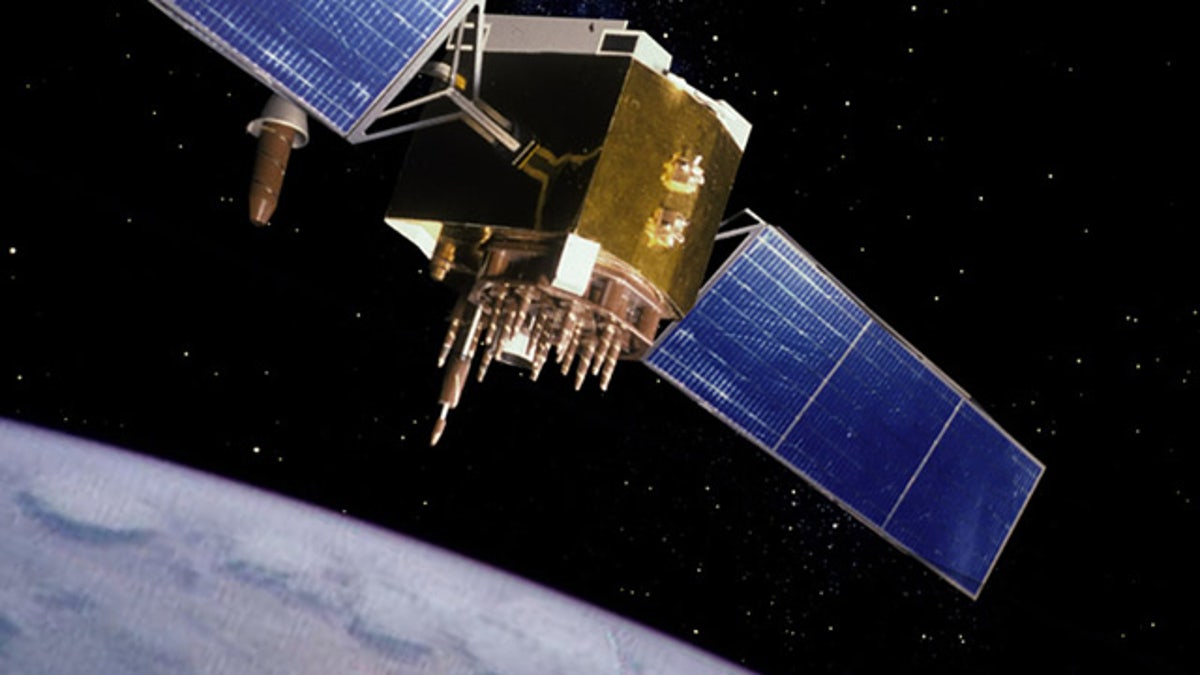
30 satellites like this one make up the GPS system, which the Air Force called "the most capable in the history of the program." (NASA)
Though it's less than a decade old, many of us would consider GPS an indispensable technology, without which we would be quite literally lost. Modern global positioning systems can track virtually any location in the world with astonishing accuracy.
So how does this remarkable technology work? The answer is more impressive than you might think.
What is GPS?
When individuals use the term "GPS," they are most often referring to a GPS receiver. In reality, the Global Positioning System is actually a constellation of 27 satellites orbiting the Earth. All GPS relies on the transmission of a precise and agreed upon time from several of these satellites, explains Phil Bourekas, executive vice president of marketing at GPS timing and synchronization company Symmetricom. It then uses this information to determine its exact location on the ground.
How does it work?
A GPS receiver doesn't send anything to the satellites, but simply listens to them broadcast their respective positions and times. It then combines the information in these broadcasts to triangulate its exact position on the Earth.
Radio signals from these satellites travel at the speed of light, or around 1 foot every one billionth of a second, explains Bourkas.
"So, if the time you get from satellite 'a' is exactly one thousandth of a second different from that you get from satellite 'b,' you know you are 1 million feet closer to one satellite than you are to the other," he said.
Bourkas says your position and time require four values: latitude, longitude, altitude, and time. "So you have four equations, you need to receive from four satellites at the same time to know the position."
The constellation of satellites ensures that you have access to at least four satellites from anywhere in the world at any given time.
Accuracy and interference
GPS is extraordinarily accurate. In fact, most modern GPS receivers should get you within 10 meters or less of your true position, Bourkas said.
Vehicle GPS navigators, such as TomTom or Garmin, provide even greater accuracy when pinpointing your position to a street because they correctly assume you aren't driving in the middle of a house. They mark you as on the street closest to the calculated position," Bourkas explains.
Despite this impressive accuracy, however, certain factors can interfere with global positioning system. Weather, like rain and snow, often disrupts a GPS receiver if it collects around the antenna. Similarly, large, built-up urban areas may experience interference due to obstruction from tall buildings, in what has been described as the "urban canyon effect."
Similarly, some experts believe that activity on the sun, such as solar flares, may also play a part in disrupting GPS communications. In addition, low cost, commonly available jamming devices can be used to disrupt signals.








































